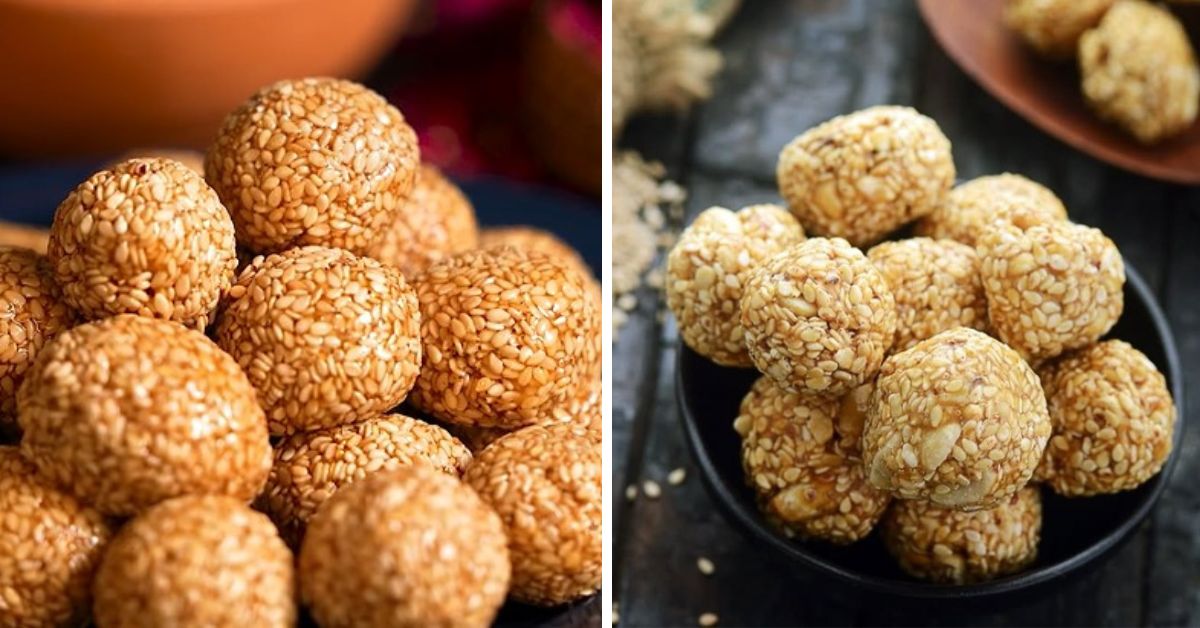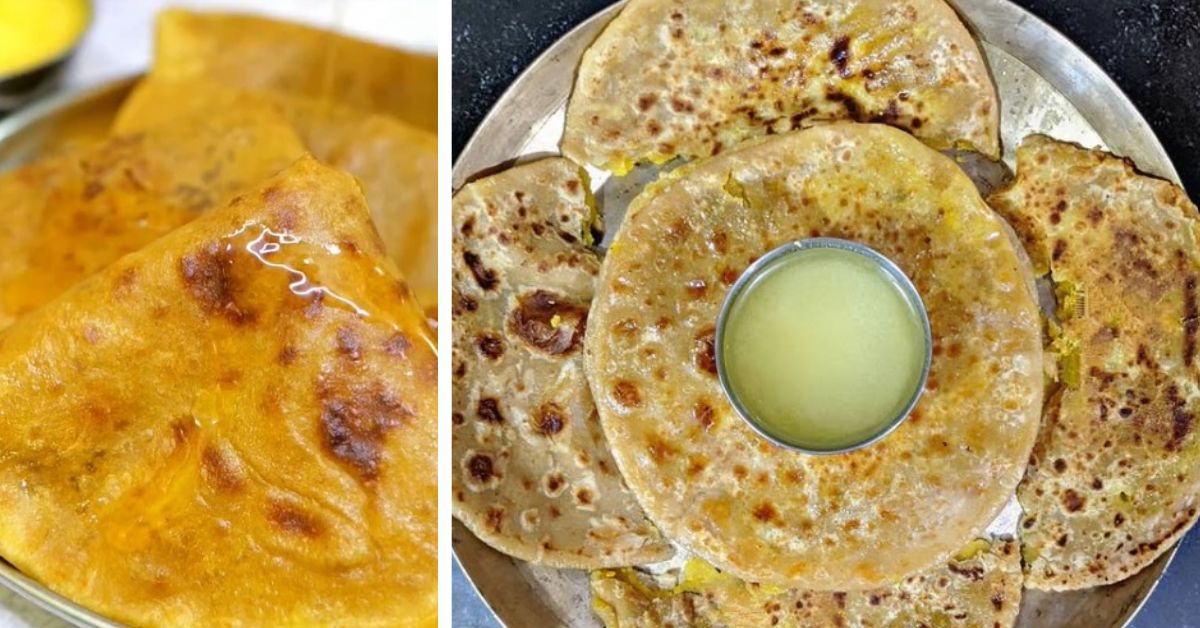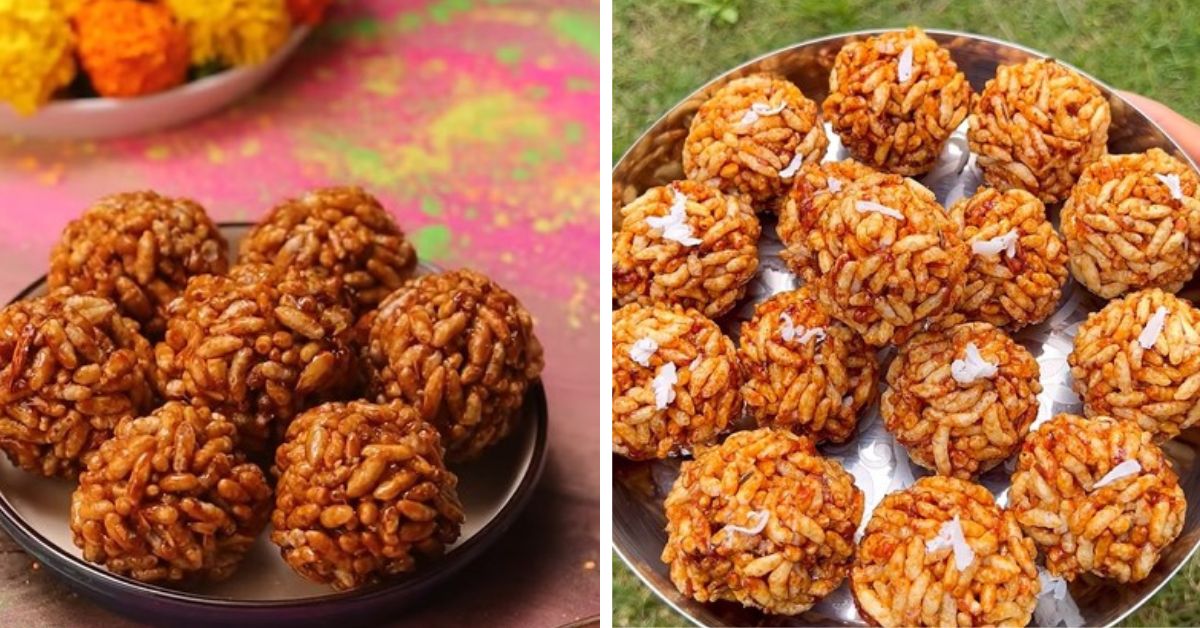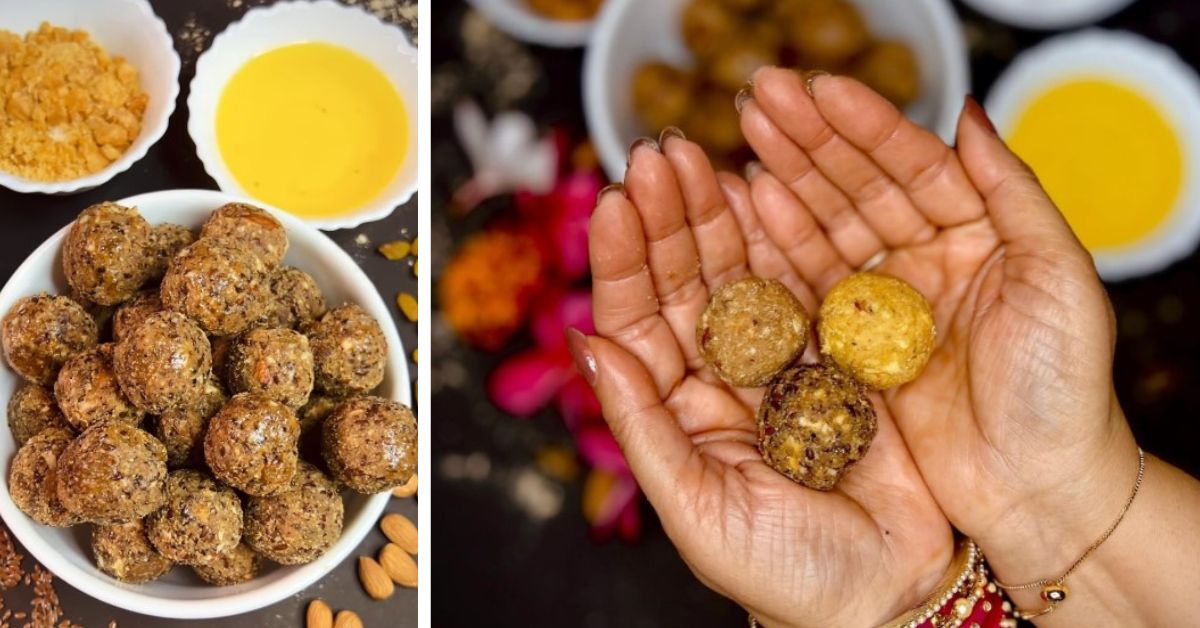The beginning of the harvest; the marker of prosperity and the harbinger of delicious foods, Makar Sankranti is a tapestry of colours both on the table and in the skies; a festival of camaraderie and bonhomie.
And, the occasion calls for digging into delicacies — til laddoos (sweet, bite-sized treats made of sesame seeds and jaggery), khichdi (a comforting bowl of rice and lentils), sakkarai pongal (a South Indian dish made with rice, lentils, jaggery, and ghee) and pinni (a Punjabi speciality made with wheat flour, ghee, and jaggery). If you are short on time, don’t worry. Here’s where you can order your Sankranti favourites online.
1. Nolen gur
Something of a hero in Indian homes, nolen gur is a jaggery made from the sap of the date palm tree Phoenix sylvestris, which produces the elixir only from November through February. Once collected, the sap is reduced over a fire for a certain amount of time, depending upon the consistency of jaggery desired.
A natural sweetener, nolen gur has added its flavour to Indian desserts through the ages. Even Sukumar Ray, father of Satyajit Ray, once declared, “Kintu shobar chaite bhalo, pauruti aar jhola gur (The best of all is bread with jhola gur).” The jaggery forms a core ingredient in many desserts such as roshogulla (a dessert made with Indian cottage cheese in sugar syrup), sandesh (a dessert made with Indian cottage cheese, milk, and sugar syrup), and payesh (a pudding of milk, rice, and sugar).
And Joynagar — a West Bengal brand founded in 2016 to help farmers find buyers for their produce — does justice to its depth of flavour. Joynagar exports around the world and is known for its authenticity.
2. Til laddoo
As the chill peaks towards the end of January, Indian homes have their time-tested shield — sesame seeds known to be a ‘warming food’ providing the body with some much-needed heat. Rich in calcium, iron, and magnesium, sesame seeds are versatile and feature in a multitude of savoury dishes and desserts. One of them is til laddoos.

In some regions of India, every exchange of the treat is accompanied by the adage ‘Til gud ghya, god god bola’ (Eat sesame and jaggery, speak sweet words). This Makar Sankranti, order your fill of til laddoos from Rajasthan’s Sahu Gajak Bhandar, a century-old heritage brand synonymous with premium handmade gajak (a dry sweet made from sesame seeds or peanuts and jaggery) and chikki (peanut brittle).
Revitalised in 2017 by Sahu Brothers, the brand honours tradition while embracing evolution.
3. Morena gajak
Crisp and wholesome is how the world describes this cult favourite that originated in Morena, a city in Madhya Pradesh. The origins of the sweet — made with sesame seeds, jaggery, peanuts, fruits, and ghee — are credited to the royal family of Morena that ruled during the 17th century.
But whilst the recipe was a closely guarded secret for years, a gentleman named Sitaram Shivhare popularised it in the 1940s, using water from the Chambal River to refine the original classic. The preparation of gajak is an intricate process, and to date, the history of the dish is legible in its taste. The town of Morena is filled with outlets that satisfy a global demand for the sweet.
One particular brand that has been serving delicious gajak is Kabliwalas. What started in 1994 as an endeavour to sell packaged premium nuts and dried fruit in Atta Market in the heart of Noida soon blossomed into a brand synonymous with gajak.
4. Puran poli
Nothing in this world can compete with the joy of waking up early on the morning of Makar Sankranti to a hot plate of puran poli (a traditional Indian sweet flatbread filled with a mixture of chickpeas and jaggery). While the dish’s protein content makes it a perfect winter recipe, the combination of sweet jaggery and wholesome chana dal (chickpeas) symbolises prosperity, abundance, and good health.

And you’ll be hard-pressed to find a better spot than Pune’s iconic Chitale Bandhu to order your share of puran poli online. The brand wears its history proudly on its sleeve — Chitale Bandhu was established in 1950, by the Late Shri Bhausaheb Chitale and has become a household name.
Today, it is known for its range of namkeen (savoury snacks) and sweets, especially its Maharashtrian bakarwadi (sweet and spicy disc-shaped snack).
5. Murmura laddoo
One of my personal favourites, murmura laddoo (a popular Indian sweet made from puffed rice, jaggery, cardamom, ghee, and dry fruits) is a light, crispy, and delicious snack that makes it to the menu of Makar Sankranti for its choice of ingredients. Like the others mentioned in this list, the combination of murmura and jaggery is considered auspicious and believed to summon good health, prosperity, and warmth in the winter.

One spot to order your murmura laddoos online is Patankar Khauwale which dates back to the late 1940s. In the heart of Pune city, a gentleman, Vasant Patankar, founded a store on the bustling street of Bajirao Road. In the ’60s, the store was host to a well-heeled crowd, the likes of legendary artists. Today, it is an eponymous brand.
6. Pinni
What do you get when you blend wheat flour, ghee, jaggery, and dry fruits? A delicious energy ball, it seems, that North India likes to call pinni. While the flour gives the sweet a characteristic texture, the ghee lends it a melt-in-mouth flavour. The resultant sweets are a powerhouse of antioxidants, a welcome addition to the winter.

You can order your fill of pinni from Pahalwan’s, started in the 1920s when a gentleman, Anant Ram Abrol, used to work in a sweet shop owned by his mentor Mani Ram Pahalwan in Machhi Hatta, Lahore.
Having gained significant experience, Anant Ram named his venture ‘Pahalwan di Hatti’, which began selling yogurt (curd), barfi (fudge), and rabri (sweetened and thickened milk).
Edited by Khushi Arora
No comments:
Post a Comment